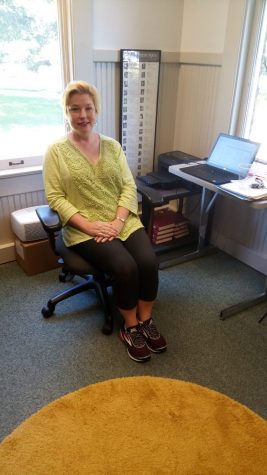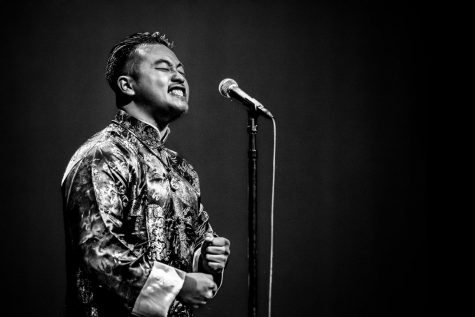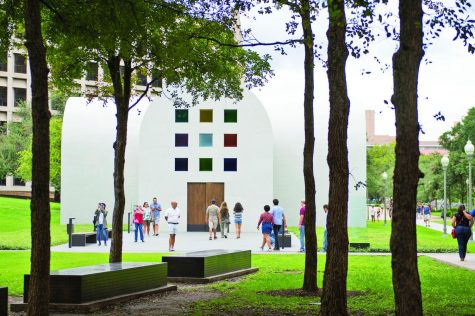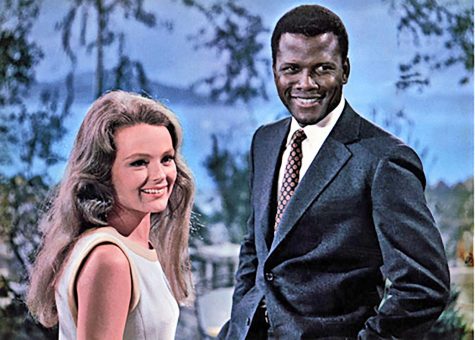Author talks goals
The man who told the story of Greg Mortenson, a climber who, after a failed attempt to scale K2, the world’s second-highest mountain, stumbled upon the village of Korphe in Pakistan in 1993, recently visited St. Edward’s University to tell his own story.
David Oliver Relin, co-author of “Three Cups of Tea,” spoke to St. Edward’s students on Oct. 12. The book, which was the assigned freshman reading this semester, focuses on Mortenson, a man who has dedicated the latter part of his life to help educate children in remote parts of Pakistan and Afghanistan.
Mortenson was in bad condition when he accidentally walked into the village, and the people of Korphe then nursed him back to health. The kindness of the villagers inspired him, and he promised the village’s chief that he would return to build a school. Since then, he has co-founded the Central Asia Institute, which has helped build 134 schools and educate 58,000 students.
Relin, who followed Mortenson on his travels for three years, began his presentation unconventionally by downing a double espresso. Fully caffeinated, he then proceeded to ask the audience, “What path will I choose in life?” Relin asked audience members to put this question into the very back of their minds for the remainder of his talk.
Relin said his own journey began with a trip to India and a Royal Enfield Bullet motorcycle the year after he graduated from ccollege. Relin discussed how this motorcycle was “the best thing to happen to him professionally, but the worst thing to happen to him transportation-wise.”
The motorcycle would constantly break down in front of people’s homes all over India. Continuously, people would come out of their homes and help him fix the unreliable motorcycle. Then, after helping Relin tie his muffler back on his bike, the strangers would offer him tea, rice or chapati.
The trip taught him the most important lesson in his life, he said –”The people with the least offer the most.”
From the experience, Relin developed a new life goal–to give back to these people.
He returned to the United States and began pitching stories to editors about traveling to remote places to capture the lives of these people. However, he said, editors were more interested in stories about celebrities or athletes. As a result, his first paying job as a journalist was an article about how to re-finish wood floors.
This was Relin’s “first step on his path in life.” Relin credits much of his self-discovery to writer and political activist Grace Paley, who taught him to “listen to the stories of the powerless and tell those stories to the powerful.” This lesson led him to find Mortenson, who would forever change his life.
Writing “Three Cups of Tea” was “part of traveling that path,” Relin said. He was excited to be able to write a book about Mortenson.
“He was inherently interesting and strange and fascinating but mostly because [Mortenson] got it,” Relin said. “He understood something fundamentally that I thought [Americans] were getting wrong as a culture.”
Relin wanted to share this story with the world, and it seems to have worked. “Three Cups of Tea” has sold more than 4 million copies and become required reading for many colleges and also for members of the military deploying to Afghanistan.
Relin also talked about a new book he is writing called “See How They Shine.”
The book is similar to “Three Cups of Tea,” but this time he follows a group of doctors working to end preventable blindness in the developing world. There are 100 million people in the world who are blind but could be cured in a matter of minutes. The doctors Relin writes about have perfected a $3,000 surgery and now charge just $15 a person, and are now restoring the sight of numerous people in remote mountain areas of Nepal.
Relin then challenged the audience.
“One smart bomb, one 250-pound smart bomb that’s dropped and is gone in an instant cost about $25,000, and one Central Asia Institute School that will educate children in a non-extremist fashion over the course of generations cost about $25,000,” Relin said. “So, which in the long-term do you think will make us safer?”
Relin asked audience members to imagine that they were children growing up in a remote village in Pakistan or Afghanistan and to think about the opportunities that would be available for them, and then in contrast to think about opportunities that are available to a St. Edward’s student. He repeated the question, “What path will you choose in life? And what effects will that choice have on making the world a better place?”
He then finished his discussion by stating that this is the path he chose in life; now, what will be yours?




